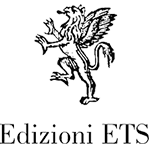Call for papers - Graphos 2/2024: Writing and artificial intelligence: a possible combination?
By definition, Artificial Intelligence (AI) is a branch of engineering that aims to create intelligent machines designed to act, react and understand language like humans. Today, machines equipped with AI are able to recognise complex patterns, summarize information, draw conclusions and make predictions. Not so long ago, these tasks were believed to belong exclusively to humans.
In a recent article, renowned linguist Noam Chomsky points out that the recent wave of interest in AI is both a source of concern and optimism: optimism because intelligence is the way by which we solve problems; concern because current AI systems incorporate a limited and imperfect understanding of human language and knowledge.
In particular, Chomsky points out that ChatGPT and similar systems are essentially statistical engines that search for patterns in data without any real understanding of linguistic and cognitive mechanisms, and reminds us that true intelligence requires creativity, but also criticality, the possibility of error, and error correction. It requires the formulation of explanations, not just the inference of correlations. Finally, it requires a capacity for moral reasoning, for balancing creativity with ethical constraints.
Does handwriting still make sense in the age of AI, or will it too be perfected by algorithms? The next issue of Graphos aims to address the many questions concerning AI and its possible relationship with writing, now and in the future, in an exciting confrontation between different pedagogical visions.
The contributions may be of a theoretical-foundational, epistemological-methodological, theoretical and practical nature; historical-pedagogical and pedagogical; didactic-methodological, with reference to the principles and teaching models of handwriting, and also to the design of plausible teacher training paths; theoretical, empirical or experimental, in the perspective of empirical research and reflection on interventions aimed at improving teacher professionalism in the didactic-methodological processes of written language in its changing cultural processes.
In addition, as in all the issues, the journal includes a section dedicated to free contributions in the broad and pluralistic field of educational sciences.




 Edizioni ETS s.r.l. LUNGARNO MEDICEO 16 - 56127 - PISA
Edizioni ETS s.r.l. LUNGARNO MEDICEO 16 - 56127 - PISA